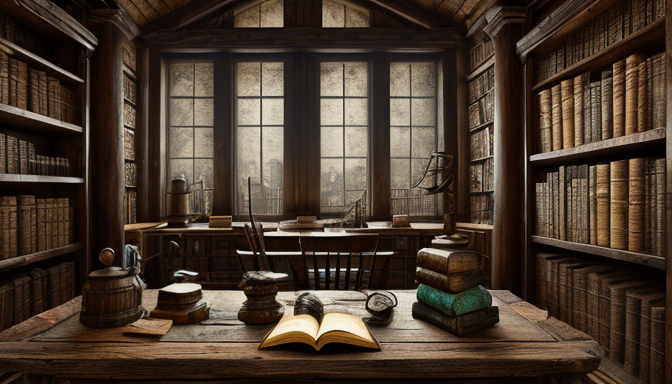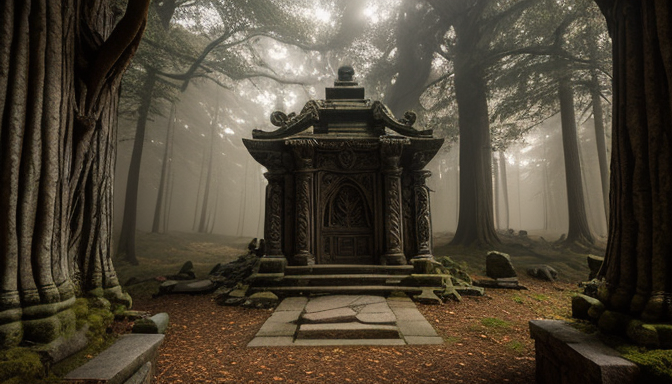Have you ever stumbled upon a tale so captivating that it felt like a window into another world? Forgotten myths hold this kind of magic, transporting us back to ancient times where gods roamed the earth and heroes faced unimaginable challenges. These stories, often buried beneath the sands of time, are not just relics; they are the foundation of human experience. They reveal the values, fears, and aspirations of the cultures that birthed them, providing a mirror reflecting our own society.
By delving into the origins of these myths, we can uncover the rich tapestry of human narrative. Each myth carries with it the weight of history, often tied to the pantheons of gods that shaped the beliefs of entire civilizations. For instance, consider the Greek pantheon, where gods like Zeus and Athena not only influenced the lives of mortals but also set the stage for epic tales of love, betrayal, and heroism. These narratives serve as cautionary tales, teaching lessons that resonate even today.
As we explore these ancient stories, we find ourselves immersed in a deeper narrative experience. They challenge us to reflect on our own lives, asking questions like, “What does it mean to be a hero?” or “How do we confront our fears?” In the end, forgotten myths are not just stories; they are timeless lessons waiting to be rediscovered, reminding us that while the world may change, the core of our human experience remains strikingly similar.
The Origins of Forgotten Myths
Have you ever wondered where the captivating tales of gods, heroes, and fantastical creatures originated? Ancient myths are not just stories; they are the very fabric of culture, woven with the threads of history, belief, and societal values. These narratives often emerged from the collective imagination of early civilizations, serving as a means to explain the unexplainable—like the changing seasons or the mysteries of the cosmos. Just think about it: when you hear the name Zeus, doesn’t it conjure images of lightning bolts and divine authority? That’s the power of myth!
In exploring the historical context of these legends, we uncover fascinating insights into the lives of those who created them. For instance, the pantheon of gods in ancient Greece was not just a collection of characters; each deity represented specific aspects of life and nature, reflecting the values and struggles of Greek society. Similarly, the myths of the Norse gods, with their tales of bravery and fate, reveal the warrior culture and the harsh realities of life in Scandinavia.
Moreover, these myths often served practical purposes. They were tools for teaching moral lessons, preserving history, and even promoting social cohesion. Imagine sitting around a fire, listening to elders recount the adventures of Odysseus or the trials of Hercules. These stories not only entertained but also instilled a sense of identity and belonging.
Ultimately, the origins of forgotten myths provide a mirror to our own humanity, reflecting our fears, dreams, and aspirations. By delving into these ancient tales, we can better understand the complex tapestry of human experience and the universal themes that continue to resonate through time.

The Impact of Myths on Modern Culture
Have you ever noticed how ancient myths seem to echo through the corridors of modern culture? It’s fascinating! These stories, often dismissed as mere folklore, actually weave themselves into the very fabric of our contemporary narratives. From blockbuster movies to bestselling novels, the influence of these forgotten tales is everywhere, shaping our understanding of heroism, morality, and the human experience.
Take, for instance, the rich tapestry of mythological pantheons that inspire countless fictional worlds. Think about how the gods and goddesses of ancient Greece or Norse legends are reimagined in today’s pop culture. Characters like Thor and Wonder Woman are not just superheroes; they are modern-day embodiments of ancient archetypes, drawing on the profound lessons these myths imparted.
Moreover, the themes of creation and destruction, love and betrayal, resonate deeply with us. They offer a mirror to our own struggles and triumphs. In literature, authors often use these age-old narratives to create deeper emotional connections with readers. For example, the concept of a hero’s journey, rooted in myth, is a powerful storytelling tool that engages audiences on a profound level.
In essence, the impact of forgotten myths on modern culture is like a hidden thread, subtly stitching together our collective consciousness. They remind us that while times change, the core human experiences remain timeless. So, the next time you dive into a movie or book, pay attention—those ancient whispers might just be guiding the narrative!
Frequently Asked Questions
- What are forgotten myths?
Forgotten myths are stories and legends that have faded from collective memory over time. They often originate from ancient cultures and carry deep meanings about human experiences, values, and beliefs.
- Why are myths important to study?
Studying myths helps us understand the cultural and historical contexts of societies. They reveal how people viewed the world, their moral values, and their social structures, offering valuable insights into human nature.
- How do forgotten myths influence modern culture?
Forgotten myths continue to shape modern literature, art, and media. They provide inspiration for contemporary storytelling and often impart timeless lessons that resonate with current societal issues.
- Can we learn lessons from forgotten myths?
Absolutely! Forgotten myths often contain moral lessons and cautionary tales that are still relevant today. They encourage us to reflect on our own lives and the choices we make.
- Where can I find more information about forgotten myths?
You can explore books, documentaries, and online resources dedicated to mythology. Many universities also offer courses on ancient literature and cultures that delve into these fascinating stories.

Recent Comments